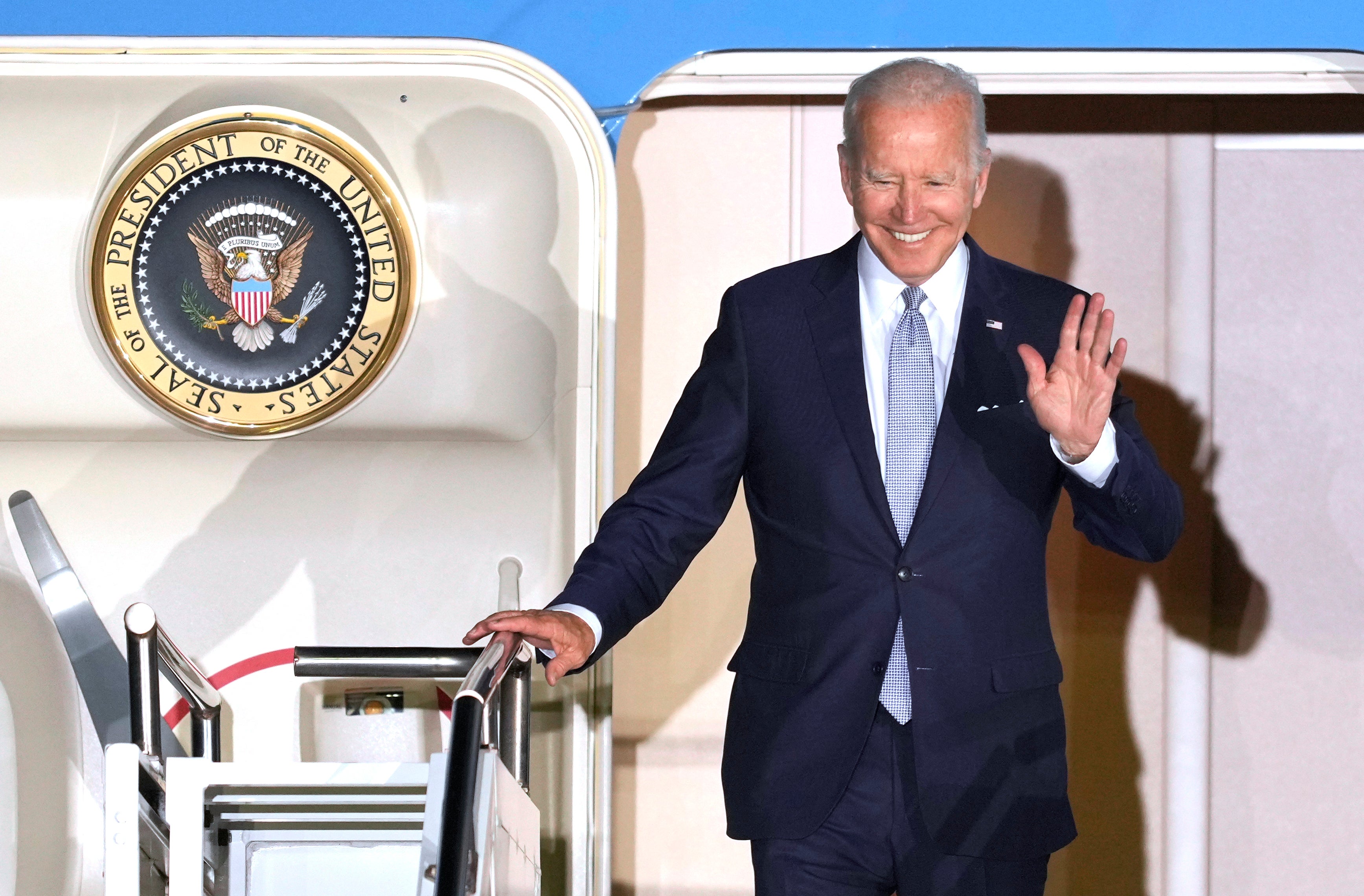Joe Biden faces a tough balancing act at the G7 and Nato summits
The president has to show a united front with world leaders while facing a number of problems in the US, writes Chris Stevenson


“We have to stay together,” Joe Biden said to the German chancellor, Olaf Scholz, the host for the latest G7 summit. Referring to the Russian invasion of Ukraine, Biden added on Sunday that Vladimir Putin had been “counting on, from the beginning, [the idea] that somehow Nato would and the G7 would splinter. But we haven’t, and we’re not going to.”
Putting on a united front has been a constant refrain for world leaders when it comes to Russia’s actions in Ukraine. All nations have been hit by soaring energy costs and high food prices as inflation rises, problems made worse by events in Ukraine. There are worries about the threat of recession in a number of countries, including the US and the UK, meaning that leaders are facing mounting domestic pressures as well as having to maintain international diplomacy.
Some voters – and candidates – in recent primary elections in the US have expressed that they care more about the domestic cost of living crisis than the situation in Ukraine, and the bump Biden received in his approval ratings in relation to his global leadership over Russia’s invasion has slipped away – although he is not the only world leader in the G7 to have been subject to this effect.
The balancing act that all of the G7 are trying to maintain is how to put significant pressure on Putin, and on Russia’s economy, as part of the response to the war in Ukraine while also trying not to destabilise further an already unsteady global economy and create greater problems at home. Polling shows that US voters see inflation as the single most pressing economic issue, and Biden can ill afford to be seen to be making that situation worse.
The other complicating factor for Biden is the Supreme Court’s decision to strike down the constitutional right to abortion. Biden said in the wake of the ruling that it “made the United States an outlier among developed nations in the world”. Four other leaders of G7 countries also expressed their concern: Scholz, Boris Johnson, the Canadian prime minister Justin Trudeau – who called the decision a “devastating setback” – and French president Emmanuel Macron.
US officials have been briefing that they don’t expect the court’s decision to affect discussions – John Kirby, the coordinator for strategic communications at the National Security Council, said: “There’s real national security issues here that have to be discussed, and the president is not at all concerned that the Supreme Court’s decision is going to take away from that”. Given that a Nato summit will follow the G7 meeting, Ukraine will top both agendas.
However, it may be hard for other leaders to ignore in private discussions how divided the US looks. The coming days might not be the easiest for Biden, with domestic issues unlikely ever to be far from his mind.



Join our commenting forum
Join thought-provoking conversations, follow other Independent readers and see their replies
0Comments